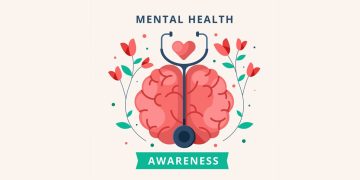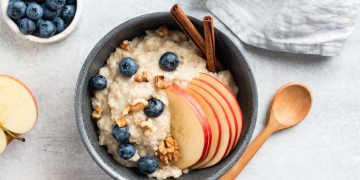The Ultimate Guide to Eating Healthier: Top Tips for a Nutritious Diet
Are you looking to improve your overall health and well-being through a more nutritious diet? Eating healthier doesn’t have to be complicated or overwhelming. By following some simple tips and making small changes to your eating habits, you can greatly improve your health and vitality. In this ultimate guide, we will provide you with the top tips for eating healthier and maintaining a nutritious diet.
Benefits of Eating Healthier
Before we dive into the tips for eating healthier, let’s first explore the numerous benefits of following a nutritious diet. Eating healthier can lead to:
- Weight loss
- Increased energy levels
- Improved digestion
- Stronger immune system
- Reduced risk of chronic diseases
Now that you understand the benefits, let’s move on to the top tips for eating healthier.
Tip 1: Fill Your Plate with Colorful Fruits and Vegetables
Fruits and vegetables are packed with essential vitamins, minerals, and antioxidants that are crucial for maintaining good health. Aim to fill half of your plate with a variety of colorful fruits and vegetables at each meal. Make sure to include a mix of leafy greens, berries, citrus fruits, and cruciferous vegetables to get a wide range of nutrients.
Tip 2: Choose Whole Grains over Refined Grains
Whole grains like quinoa, brown rice, and oats are a great source of fiber, vitamins, and minerals. Replace white bread, white rice, and other refined grains with whole grains to boost your nutrient intake and improve digestion. Whole grains can also help lower your risk of heart disease and diabetes.
Tip 3: Include Lean Protein Sources in Your Diet
Protein is essential for building and repairing tissues in the body. Opt for lean protein sources like chicken, turkey, fish, beans, and tofu. These foods are low in saturated fat and high in essential amino acids that your body needs to function properly. Aim to include a source of protein in each meal to feel satiated and maintain muscle mass.
Tip 4: Limit Added Sugars and Processed Foods
Avoid foods that are high in added sugars, artificial sweeteners, and preservatives. These foods can lead to weight gain, inflammation, and other health issues. Opt for whole, unprocessed foods whenever possible and read labels to avoid hidden sugars and additives. Cutting back on sugary drinks, desserts, and snacks can greatly improve your overall health.
Tip 5: Stay Hydrated with Water
Drinking enough water is essential for maintaining good health. Aim to drink at least 8-10 cups of water per day to stay hydrated and support proper digestion, metabolism, and nutrient absorption. Avoid sugary drinks and excessive caffeine, which can dehydrate the body. Carry a reusable water bottle with you throughout the day to help you remember to drink enough water.
Tip 6: Practice Mindful Eating
Slow down and pay attention to what you are eating. Mindful eating involves savoring each bite, chewing slowly, and listening to your body’s hunger and fullness cues. Avoid distractions like watching TV or scrolling on your phone while eating. This can help prevent overeating and promote better digestion.
Tip 7: Plan and Prepare Your Meals Ahead of Time
One of the keys to eating healthier is to plan and prepare your meals ahead of time. Take some time each week to create a meal plan, grocery shop for healthy ingredients, and prep meals in advance. This can help you avoid the temptation of fast food or unhealthy convenience foods when you’re busy or tired. Investing in quality food storage containers and kitchen tools can also make meal prep easier and more enjoyable.
Tip 8: Listen to Your Body’s Hunger and Fullness Signals
Pay attention to your body’s signals of hunger and fullness. Eat when you are hungry and stop when you are satisfied, not stuffed. Remember that it’s okay to leave food on your plate if you are full, and to enjoy treats in moderation. Avoid restrictive diets or skipping meals, as this can lead to poor energy levels and nutrient deficiencies.
Tip 9: Focus on Balance and Moderation
Eating healthier doesn’t mean you have to eliminate all your favorite foods. Instead, focus on balance and moderation. Allow yourself to enjoy indulgent foods occasionally, but make sure to balance them with plenty of nutritious foods. Listen to your cravings and practice mindful eating to avoid overindulging in unhealthy foods.
Tip 10: Get Support and Accountability
Changing your eating habits can be challenging, but having support and accountability can make it easier. Join a cooking class, start a healthy eating challenge with friends or family, or work with a nutritionist or health coach to help you stay on track. Surround yourself with like-minded individuals who share your goals and can provide encouragement and motivation.
Conclusion
By following these top tips for eating healthier and maintaining a nutritious diet, you can greatly improve your health and well-being. Remember to fill your plate with colorful fruits and vegetables, choose whole grains over refined grains, include lean protein sources, limit added sugars and processed foods, stay hydrated with water, practice mindful eating, plan and prepare your meals ahead of time, listen to your body’s hunger and fullness signals, focus on balance and moderation, and get support and accountability. Making small changes to your eating habits can lead to big improvements in your overall health. Start incorporating these tips into your daily routine and enjoy the numerous benefits of a healthier diet.
Remember that eating healthy is a journey, not a destination. Be patient with yourself, celebrate your successes, and learn from your setbacks. With perseverance and determination, you can achieve your health and wellness goals. Here’s to a happier, healthier you!












































